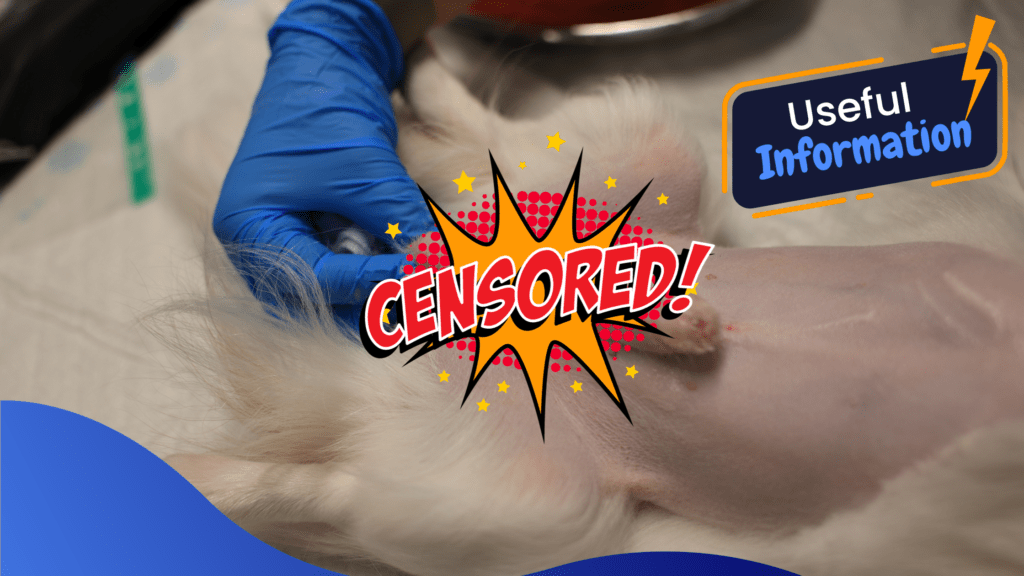
Cryptorchidism (undescended testicles) in dogs and cats happens when one or both testicles are retained in the abdomen and fail to descend into the scrotum (ball sack).
When a male puppy or kitten is born their testicles are inside his body, over a period of approximately two weeks they begin dropping into the scrotum through a narrow channel called the inguinal canal. This process can take longer in some puppies and kittens, if both testicles have not descended by the age of 6 months it is extremely unlikely that they will.
The undescended testicle is usually underdeveloped and non-functional, it is however a potential source of problems later in life such as becoming cancerous or twisted, which are both life-threatening conditions.
What Are the Causes Of Cryptorchidism in Dogs and Cats?
Genetics! Cryptorchidism is believed to be an inherited trait, if the parental history of the dog is known and the father had cryptorchidism, there is an increased chance that the offspring may have it.
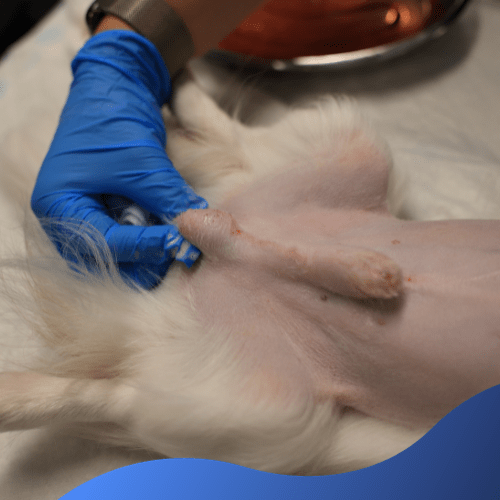
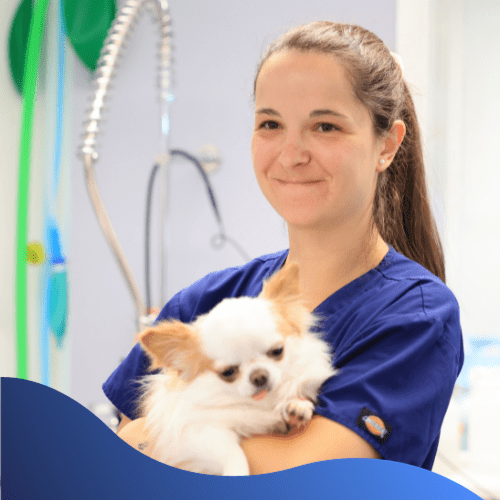
Are certain dog breeds more at risk of cryptorchidism?
Purebred dogs can be more at risk, as small or toy breeds such as:
- Pomeranian
- Yorkshire Terrier
- Dachshund
- Schnauzer
- Maltese
- Toy Poodles
- Chihuahua
Larger dogs such as English Bulldogs and Boxers can also be affected.
What Are The Symptoms Of Cryptorchidism In Dogs And Cats?
Types:
Unilateral – One testicle is affected
Bilateral – Both testicles are affected
Cryptorchidism can happen in one or both testicles, the retained testicles will continue to produce testosterone but not sperm:
This condition is rarely associated with any pain or signs unless complications occur. In the early stages, a single retained testicle is significantly smaller than the other, normal testicle. If both testicles are retained, your dog may be infertile.
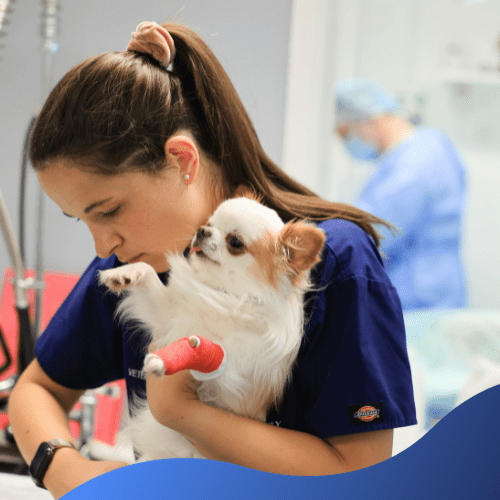
How Do You Diagnose Cryptorchidism In Dogs And Cats?
Cryptorchidism is diagnosed by palpation of the scrotum and finding the absence of one or both testicles. The diagnosis is frequently made in the young healthy dog or cat when he is presented to the veterinarian for a routine health check or castration. Often the owner is unaware that the problem exists.
How Do You Treat Cryptorchidism In Dogs And Cats?
It is possible to remove most undescended testicles surgically, however, the exact operation your dog needs will depend on where his testicles(s) are sitting:
- Abdomen – If they are in the tummy, we will need to open your dog up to find and remove them.
- Inguinal Canal – If they are stuck in the groin, we may decide to remove them through the skin.
- Keyhole Cryptorchidectomy – Less invasive surgery with a speedier recovery.
Removing retained testicles is complex compared to normal castration, especially if they are difficult to locate.
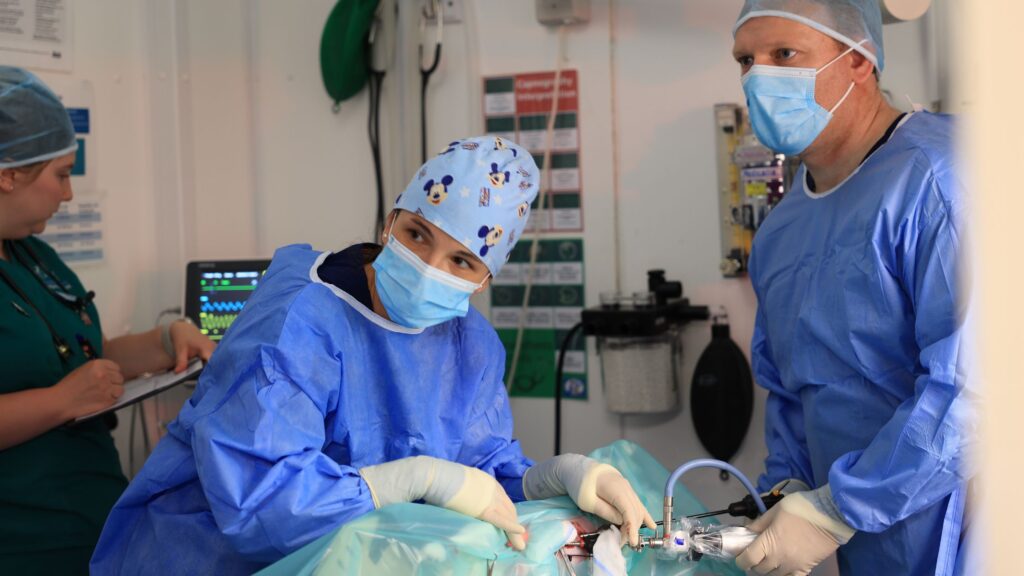
Keyhole Cryptorchidectomy.
If you suspect your pooch has a retained testicle, please get in touch, or:
Thank you for reading, until next time…
